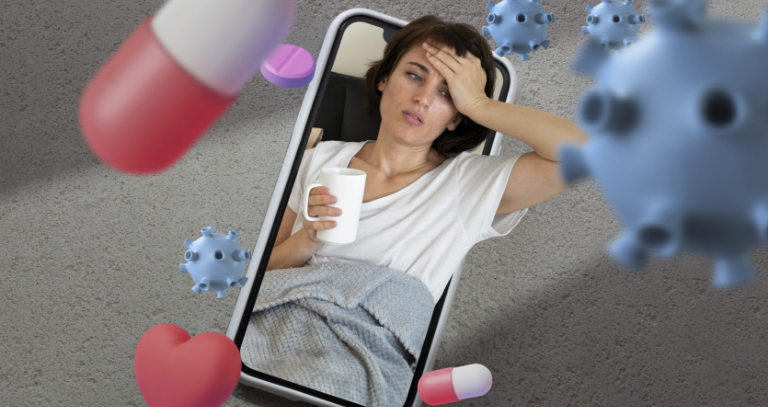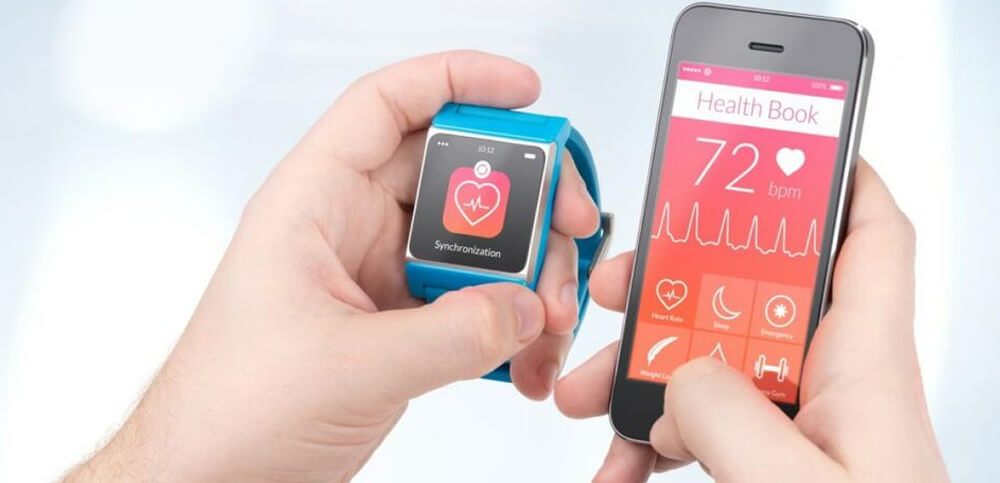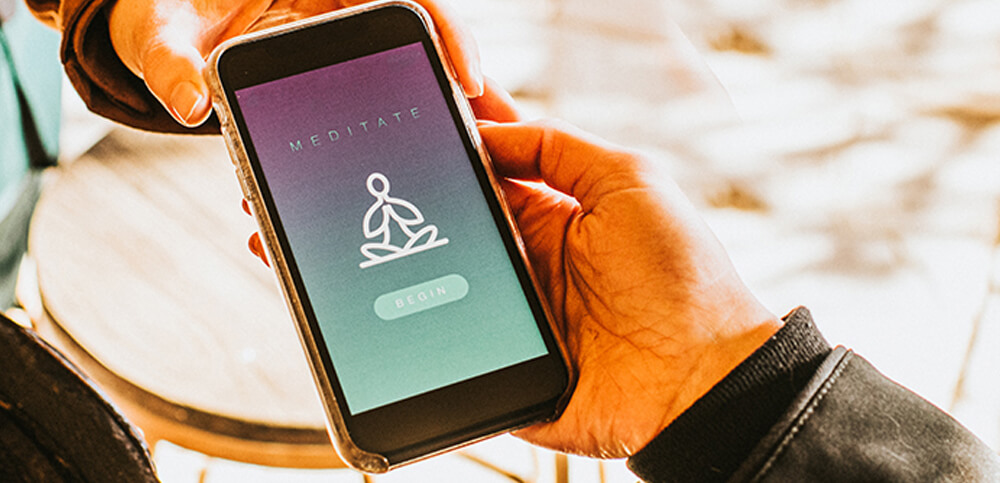5 Types of Patient Healthcare Apps That are Gaining Popularity
Table Of Content
Published Date :
30 Mar 2023
Our smartphones are replete with all kinds of apps. We use apps for shopping, video streaming, social networking, and what not. In the domain of healthcare also, there is a wide range of mobile applications and custom healthcare solutions that both healthcare service providers and patients use. Some of the most popular apps in this category are:
1. Remote Patient Monitoring (RPM) App

Remote Patient Monitoring (RPM) apps help healthcare providers monitor their patients' health conditions remotely. These apps use IoT technology to collect data from connected devices such as wearable sensors, smart home devices, and smartphones.
This data is transmitted to healthcare providers, who use it to track patients’ health conditions, identify potential health risks, and adjust their treatment plans accordingly.
RPM apps can also help healthcare professionals deliver personalized care to their patients. By collecting data about a patient's health condition, preferences, and lifestyle, they can modify their treatment to meet the individual's needs.
For instance, a patient with diabetes can use a connected glucometer to track their blood sugar levels, and their doctor can adjust their medication and diet plan accordingly.
Another benefit of RPM apps is reduced healthcare costs. By enabling remote monitoring, healthcare providers can detect potential health issues before they become serious which reduces the need for expensive hospitalizations and emergency room visits.
Additionally, such apps can help healthcare institutions manage their resources more efficiently, which can reduce costs and improve overall efficiency.
Check Our portfolio of SAAS Based RPM here.
2. Chronic Disease Monitoring Apps
Chronic disease management apps help patients manage their chronic health conditions such as diabetes, heart disease, and hypertension. These apps are particularly useful for patients who need frequent monitoring of their vital signs along with proper medication management.
These apps can help patients track their symptoms, medication, and lifestyle factors such as activity levels and nutrition. By collecting this data, healthcare providers can identify potential health risks and provide personalized recommendations to improve the patient's health.
Chronic disease monitoring apps can also help patients become more engaged in their healthcare. By providing patients with real-time data about their health condition, such apps can help patients understand their condition better and take an active role in managing their health. Patients can also use these apps to communicate with their doctors, ask questions, and receive feedback on the go.
Also Read: Debunking Myths About Remote Patient Monitoring
3. Healthy Lifestyle Maintenance Apps

Healthy lifestyle maintenance apps are designed to help people maintain a healthy lifestyle. These apps can help users track their physical activity, nutrition, sleep, and stress levels. Additionally, these applications can provide real-time feedback on the user's progress towards their health goals, such as taking a certain number of steps per day or reducing their daily calorie intake.
By collecting this data, users can better understand their habits and make informed decisions about their lifestyle choices.
Healthy lifestyle maintenance apps can also provide educational resources which users can use to learn more about healthy living. The users can access a vast repository of articles, videos, and podcasts on topics such as healthy eating, exercise, and stress management. By consuming this information, users can become more informed about the lifestyle choices that can improve their health.
Another major way healthy lifestyle apps help individuals is by helping them connect with others who share their health goals. This is because such apps often provide social support through online communities and forums, where users can share their experiences and offer encouragement to one another. This social support can help users stay motivated and committed to their health goals.
4. Mental Health Apps
Mental health has become a hot topic across the globe, especially since the COVID outbreak. To address major mental health issues such as depression and anxiety, and to support individuals in managing their mental health and well-being, mental health apps are being designed today.
These apps offer a range of features and services that can help users track their mood, practice mindfulness and meditation, connect with mental health professionals, and access resources for managing their symptoms.
One of the benefits of mental health apps is their accessibility. Users can access these apps anytime, anywhere, making it easier for them to manage their mental health on-the-go. Additionally, many mental health apps are free or low-cost, making them an affordable option for individuals who may not have access to traditional mental health care.
Some mental health apps also incorporate evidence-based therapeutic techniques, such as cognitive-behavioral therapy (CBT) or dialectical behavior therapy (DBT), which have been shown to be effective in treating a variety of mental health conditions.
However, it's important to note that mental health apps should not replace professional mental health care. While these apps can be a helpful addition to a person's mental health toolkit, they should not be used as a substitute for therapy or other forms of treatment.
Also Read: Mental Health Business Ideas
5. Fitness and Yoga Apps
Fitness and yoga apps have become increasingly popular in recent years, as people seek more convenient ways to stay active and healthy. These apps offer a variety of workouts, from high-intensity interval training (HIIT) and weightlifting to yoga and meditation, and can be accessed from anywhere with an internet connection.
Many apps also include features such as goal tracking, social support, and personalized coaching, making it easier for users to stay motivated and achieve their fitness goals.
Just like mental health apps, one of the main benefits of fitness and yoga apps is that they can make exercise more accessible and affordable. With the rise of at-home workouts, users can save money on gym memberships and expensive equipment and can fit workouts into their busy schedules. Many apps also offer free or low-cost versions, making them more accessible to people of all income levels.
Another advantage of fitness and yoga apps is the variety of workouts available. Users can choose from a range of workouts, from beginner to advanced, and can target specific areas of the body or types of exercise. This allows users to customize their workouts to their own preferences and fitness levels, making it easier to stick with a routine over time.
So, there you have it- five different types of healthcare apps that are becoming highly prevalent and popular today. Each category addresses a specific health concern and assists with a healthier lifestyle. As healthcare is becoming more digital and technologically-embedded, there is massive potential in the way healthcare mobile apps are created and adopted.

Nidhi Thakur
With more than 19 years of experience - I represent a team of professionals that specializes in the healthcare and business and workflow automation domains. The team consists of experienced full-stack developers supported by senior system analysts who have developed multiple bespoke applications for Healthcare, Business Automation, Retail, IOT, Ed-tech domains for startups and Enterprise Level clients.
Recent Posts

From real-time tracking to proactive maintenance, IoT offers significant benefits for fleet management. Dive into IoT fleet management use cases and advantages in this blog.

A strategic overview of how mining-focused project management software improves cost control, resource planning, visibility, and executive decision-making across complex, multi-site mining operations globally today.

From basic monitoring to enterprise-wide control, energy management system costs depend on your needs. Here’s what influences pricing.
 Doha Exhibition and Convention Center (DECC)
Doha Exhibition and Convention Center (DECC)